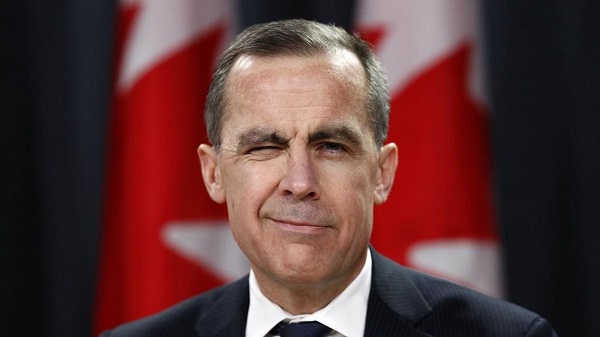Business
84% of Swiss hospitals and 60% of hospitalizations are in private facilities, and they face much lower wait times

From the Fraser Institute
If Canada reformed to emulate Switzerland’s approach to universal health care, including its much greater use of private sector involvement, the country would deliver far better results to patients and reduce wait times, finds a new study published today by the Fraser Institute, an independent, non-partisan Canadian policy think-tank.
“The bane of Canadian health care is lack of access to timely care, so it’s critical to look to countries like Switzerland with more successful universal health care,” said Yanick Labrie, senior fellow at the Fraser Institute and author of Integrating Private Health Care Into Canada’s Public System: What We Can Learn from Switzerland. The study highlights how Switzerland successfully integrates the private sector into their universal health-care system, which consistently outperforms Canada on most health-care metrics, including wait times.
For example, in 2022, the percentage of patients who waited less than two months for a specialist appointment was 85.3 per cent in Switzerland compared to just 48.3 per cent in Canada.
In Switzerland, 84.2 per cent of all hospitals are private (either for-profit or not-for profit) institutions, and the country’s private hospitals provide 60.2 per cent of all hospitalizations, 60.9 per cent of all births, and 67.1 per cent of all operating rooms.
Crucially, Swiss patients can obtain treatment at the hospital of their choice, whether located inside or outside their geographic location, and hospitals cannot discriminate against patients, based on the care required.
“Switzerland shows that a universal health-care system can reconcile efficiency and equity–all while being more accessible and responsive to patients’ needs and preferences,” Labrie said.
“Based on the success of the Swiss model, provinces can make these reforms now and help improve Canadian health care.”

Integrating Private Health Care into Canada’s Public System: What We Can Learn from Switzerland
- Access to timely care remains the Achilles’ heel of Canada’s health systems. To reduce wait times, some provinces have partnered with private clinics for publicly funded surgeries—a strategy that has proven effective, but continues to spark debate in Canada.
- This study explores how Switzerland successfully integrates private health care into a universal public system and considers what Canada can learn from this model.
- In Switzerland, universal coverage is delivered through a system of managed competition among 44 non-profit private insurers, while decentralized governance allows each of the 26 cantons to coordinate and oversee hospital services in ways that reflect local needs and priorities.
- Nearly two-thirds of Swiss hospitals are for-profit institutions; they provide roughly half of all hospitalizations, births, and hospital beds across the country.
- All hospitals are treated equally—regardless of legal status—and funded through the same activity-based model, implemented nationwide in 2012.
- The reform led to a significant increase in the number of cases treated without a corresponding rise in expenditures per case, suggesting improved efficiency, better use of resources, and expanded access to hospital care.
- The average length of hospital stay steadily decreased over time and now stands at 4.87 days in for-profit hospitals versus 5.53 days in public ones, indicating faster patient turnover and more streamlined care pathways.
- Hospital-acquired infection rates are significantly lower in private hospitals (2.7%) than in public hospitals (6.2%), a key indicator of care quality.
- Case-mix severity is as high or higher in private hospitals, countering the notion that they only take on simpler or less risky cases.
- Patient satisfaction is slightly higher in private hospitals (4.28/5) than in public ones (4.17/5), reflecting strong user experience across multiple dimensions.
- Canada could benefit from regulated competition between public and private providers and activity-based funding, without breaching the Canada Health Act.

Business
PM Carney’s Astounding Conflicts Are Clearly Exposed. What Will Parliament, The Media, And Voters Do About It?

Will opposition parties force an election? Will the media demand Carney account for his conflicts? Will voters continue to allow Carney and Brookfield to profit from Carney’s leadership as they condemn the US President for doing the same?
NEWS ALERT!!!! https://t.co/HrhXGCyfPq
— Andrew Scheer (@AndrewScheer) October 1, 2025
From Conservative Party Communications
Conservative members of the Ethics Committee released the following statement on its ongoing investigation into Prime Minister Mark Carney’s conflicts of interest:
“Yesterday, the Ethics Committee heard scathing testimony from Canada’s leading ethics and accountability experts on the façade that is Mark Carney’s so-called blind trust – and his conflict of interest screen which is nothing more than a smokescreen.
“Leading ethics and conflict of interest experts told MPs that these measures are entirely insufficient, and that Prime Minister Carney stands to make millions from his investments while keeping them largely hidden from Canadians. The breadth of Carney’s conflicts and potential to benefit financially are entirely unprecedented in federal Canadian politics.
“Carney was involved in structuring Brookfield’s Global Transition Funds, from which he is set to receive carried interest payments potentially worth tens of millions of dollars. Carney knows exactly what assets are in these funds, but he has refused to disclose them. If the funds make money, he makes money – and the decisions he makes as Prime Minister will impact their value.
“Democracy Watch founder Duff Conacher testified that the Conflict of Interest Act allows Carney to ‘secretly profit’ from ‘secret investments’ – dismissing blind trusts as ‘not blind at all’ – and confirmed that Carney knows exactly what is in his blind trust. It is only the public that is blind to the full extent of the Prime Minister’s holdings.
“As currently written, the Act allows the Prime Minister to participate in ‘99% of the decisions’ that impact his private investments. Conacher considers the legislation a ‘sad joke’ – noting that ‘any time [Carney] is making a decision that affects businesses in Canada, he is in a financial conflict of interest.’
“As York University’s Dr. Ian Steadman told the Committee, blind trusts simply ‘aren’t enough’ to prevent public office holders from advancing their personal financial interests.
“Witnesses also slammed the Prime Minister’s conflict of interest screen. The screen is enforced by Carney’s top two aides who serve at his pleasure and are not independent. It lacks any transparency or oversight mechanism, which Conacher noted is a violation of the Act.
“The Ethics Commissioner has the power to strengthen the ethics screen and enforce full transparency today. He has failed to do so. This is deeply troubling, and must be addressed.
“These revelations are just the tip of the iceberg in an ongoing investigation. Conservatives will continue to expose Mark Carney’s unprecedented conflicts of interests and fight to close the loopholes in the Act that the Prime Minister is taking advantage of.”
Alberta
Ottawa’s Firearms Buyback Plan: Federal Government Puts Provincial Authority In Its Sights

From the Frontier Centre for Public Policy
It’s about politics and provinces are right to refuse to play along
Federal Public Safety Minister Gary Anandasangaree’s leaked admission that Ottawa’s firearms buyback is unenforceable was no slip. It exposed the way federal power is deployed for partisan gain while provinces are left to pay the bill.
The leak matters because it exposes a pattern, not an exception. Ottawa drafts policies to suit its politics and expects provinces to carry the weight. Police budgets, university research chairs, hospital systems and housing markets are treated as levers to be pulled from Ottawa. The effects are felt locally, but the decisions are made elsewhere.
Consider the pattern. The Online Harms Act, rejected more than once, is introduced yet again, as if repetition can substitute for consent. Health care dollars are tied to federal strings that reorder provincial systems with no regard for local capacity. Immigration quotas climb at a pace provinces cannot house or school. Environmental rules descend without negotiation, upending years of co-operative planning. Each measure arrives as an edict. Consultation is reduced to announcement.
Resistance has already begun. Saskatchewan moved early, adopting legislation that makes any federal confiscation program subject to provincial authority, including RCMP operations. In Alberta, Premier Danielle Smith has gone further, declaring flatly: “We will not allow police in Alberta to confiscate previously legal firearms. I have directed two of my ministers to relentlessly defend Albertans’ right to lawful and safe possession of firearms and the right to self-defence.”
Even before the introduction of the Sovereignty Act, Tyler Shandro, then Alberta’s justice minister, announced that the province would not use its police or prosecutors to carry out confiscations. Although former premier Jason Kenney opposed a Sovereignty Act, his government likewise refused to act as Ottawa’s enforcer.
Alberta and Saskatchewan have since given themselves legislative tools, Sovereignty Acts, which assert the right of provinces to decline enforcement of federal laws they judge unconstitutional. These statutes formalize existing constitutional powers. Provinces without Sovereignty Acts have also drawn lines. Ontario has signalled its refusal to help enforce Ottawa’s firearms program.
These positions are lawful, rooted in the Constitution’s division of powers, which assigns the administration of justice and policing to the provinces.
This clarity ought to attract others. Manitoba, with one of the highest proportions of licensed hunters in the country, has strong reason to resist Ottawa’s targeting of lawful gun owners. Communities are not made safer by seizing deer rifles from responsible hunters, nor are public services improved by diverting scarce provincial resources into a program that federal ministers concede will not work. Manitoba would do well to follow Alberta and Saskatchewan in defending its jurisdiction, whether through a Sovereignty Act or by refusing to play Ottawa’s game.
The point is practical. Prairie provinces cannot spare rural detachments to seize hunters’ rifles because the Liberal caucus fears losing seats in Montreal. They cannot put their power grids at risk to meet Ottawa’s timelines while households absorb higher bills. Universities cannot be turned into federal policy pilot projects. Provinces exist to govern their own communities, not to absorb the fallout of federal experiments.
The genius of federalism lies in the division of authority, which encourages compromise and minimizes tyrannical imposition. Ottawa governs in its sphere, provinces in theirs. Where the two overlap, cooperation must be negotiated, not imposed. Sovereignty Acts sharpen that principle. They remind Ottawa that partnership is earned, not dictated.
What Anandasangaree’s admission exposed was not only the cynicism of one firearms program. It revealed a method of governing: federal power deployed for partisan gain, with provinces reduced to instruments. That cannot endure. Canada was never meant to be a chain of command. It was built as a contract—one that requires respect for provincial authority.
Provinces that refuse to carry out Ottawa’s politically motivated projects are not weakening Canada; they are enforcing its terms.
Marco Navarro-Genie is vice-president of research at the Frontier Centre for Public Policy and co-author, with Barry Cooper, of Canada’s COVID: The Story of a Pandemic Moral Panic (2023).
-

 Alberta1 day ago
Alberta1 day agoWith no company willing to spearhead a new pipeline under federal restrictions, Alberta takes the lead
-

 National2 days ago
National2 days agoCanada’s birth rate plummets to an all-time low
-

 espionage2 days ago
espionage2 days agoNorth Americans are becoming numb to surveillance.
-

 Alberta24 hours ago
Alberta24 hours agoHalfway River First Nation makes history with Montney natural gas development deal
-

 Crime2 days ago
Crime2 days agoPierre Poilievre says Christians may be ‘number one’ target of hate violence in Canada
-

 Business1 day ago
Business1 day agoElon Musk announces ‘Grokipedia’ project after Tucker Carlson highlights Wikipedia bias
-

 Bruce Dowbiggin1 day ago
Bruce Dowbiggin1 day agoThe McDavid Dilemma: Edmonton Faces Another Big Mess
-

 Alberta1 day ago
Alberta1 day agoTaxpayers: Alberta must scrap its industrial carbon tax




